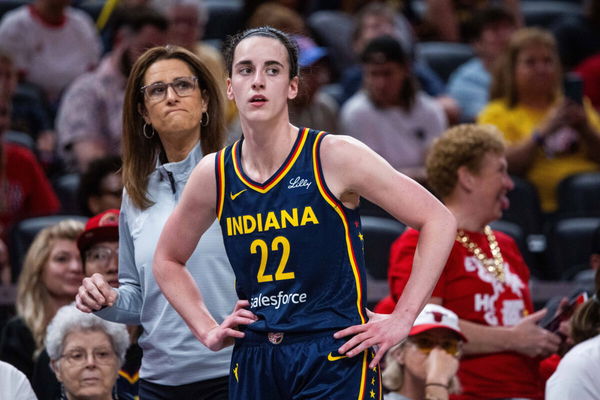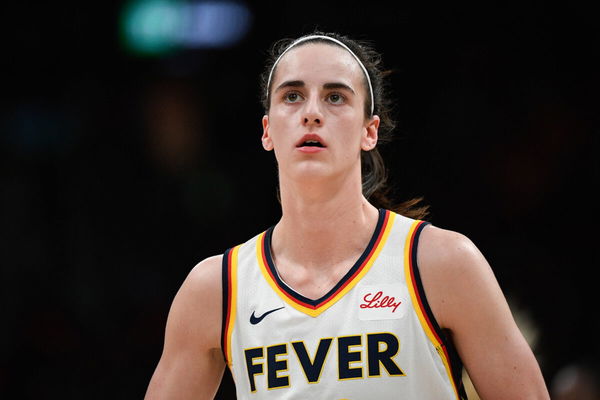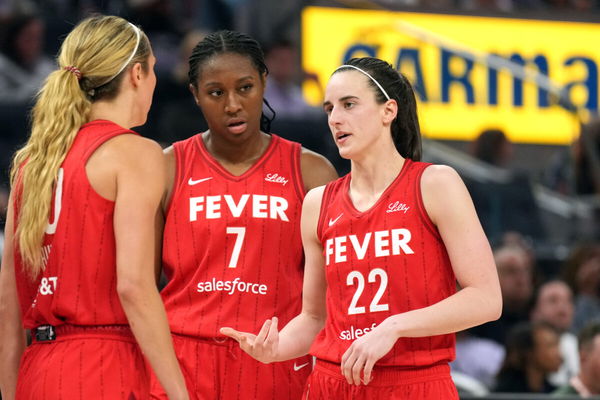
via Imago
Jun 17, 2025; Indianapolis, Indiana, USA; Indiana Fever guard Caitlin Clark (22) and head coach Stephanie White in the first half against the Connecticut Sun at Gainbridge Fieldhouse. Mandatory Credit: Trevor Ruszkowski-Imagn Images

via Imago
Jun 17, 2025; Indianapolis, Indiana, USA; Indiana Fever guard Caitlin Clark (22) and head coach Stephanie White in the first half against the Connecticut Sun at Gainbridge Fieldhouse. Mandatory Credit: Trevor Ruszkowski-Imagn Images

If you think one injury is tough, try five. Caitlin Clark never truly found her footing in 2025, battling setback after setback. It started with left leg tightness, followed by a left quad strain. Then, fate switched sides. A right groin injury effectively ended her season. Any remaining hope for a return was crushed by a severe left ankle sprain, which Clark described as “one of the worst sprains” of her career. As the offseason begins, her top priority is clear recovery above all else.
Watch What’s Trending Now!
“I think my main focus is really just getting my body healthy. Once we get back to five-on-five, like just being able to test my body and make sure I know it’s in a good spot where it’s going to be able to hold up with everything that, we think we’ve corrected or we think we’ve worked on to be able to know I’m in a really good spot there.” Clark revealed. As she ramps up to full fitness, Clark will also need to work on her mid-range game to come back as a better player in 2026.
“It’s (her floater) one of the big things that I’m curious if we’re going to see going forward more in Caitlin Clark’s game in particular because she is a player who, we do not see that kind of shot, with the same frequency as we do with some of the other players, in her current repertoire. So, that’s definitely a potential area of improvement that I have my eye on as we look forward with her in particular,” Ben Pickman pointed out on No Offseason: The Athletic Women’s Basketball Show.
ADVERTISEMENT
Article continues below this ad
Caitlin Clark’s lack of a ‘middy’ dates back to her days in Iowa and Lisa Bluder’s philosophy of ‘3 and key’. In her rookie WNBA season, Clark only had 8.05% of her total shot attempts from 3 to 10 feet, according to Basketball Reference. Her efficiency of 46.08% was decent, but the lack of volume raised red flags. 2025 was expected to be that test, but 13 games fell short of certifying the same.
“The biggest thing on the court is just that mid-range area,” Clark said in April. “I got pretty uncomfortable in there when I would get in there; I didn’t really have any floater. I didn’t like taking a mid-range jump shot, so just getting more comfortable when I get my feet kind of into the paint. And, honestly, trying to just add a floater to my game and finishing through contact and little things like that.”
ADVERTISEMENT
Article continues below this ad
In the 13 games she played, her midrange volume dropped to 7.84% with an efficiency at 48%. There is an uptick in the efficiency, but she only shot 25 shots from that range, which boosts that number. In college or even in her rookie year, Clark did not need that mid-range floater much, but the rest of the league is slowly but surely making it their bread and butter.

via Imago
BOSTON, MA – JULY 15: Indiana Fever guard Caitlin Clark 22 looks on during a WNBA, Basketball Damen, USA game between the Indiana Fever and the Connecticut Sun on July 15, 2025, at TD Garden in Boston, MA. Photo by Erica Denhoff/Icon Sportswire WNBA: JUL 15 Indiana Fever at Connecticut Sun EDITORIAL USE ONLY Icon25071503
“This year, shots taken in the 3 to 10 foot range in the WNBA for basketball reference were up around 6% this year year-over-year, and that’s the biggest jump that we have seen in some time kind of excluding 2019 and 2020, which had this like very weird anomalous bubble season, and it is up almost 10% from a decade ago,” Pickman said. This is a sign that the perimeter defense is improving.
The average 3-point percentage across the league has largely remained the same over the last two seasons (33.5% in 2024, 33.6% in 2025). And the midrange is the need of the hour to adapt to the changing tactics. Caitlin Clark will be needed to add the floater or some form of mid-range game to add variety. Beyond just her shot-making, Caitlin Clark’s game will also change in other ways next season.
ADVERTISEMENT
Article continues below this ad
What’s your perspective on:
Will Caitlin Clark's shift off the ball unlock her full potential or limit her impact?
Have an interesting take?
Is Caitlin Clark headed off the ball in 2026?
In 2024, Clark had a usage rate of 26.2% which was the most on the team and among the top 10 in the league, a reflection of how Clark played the best when she had the ball in her hands. That nature had led Clark to become the premier creator, breaking the WNBA assist record with 334 assists. In 2025, injuries forced Stephanie White to use Caitlin Clark differently when she was fit.
“I like the ability to have two primary on the floor being able to give the opponent different looks,” White said in early July, “Quite frankly, for C, especially not having to have her play under duress 94 feet. We’ll continue to work on that.” Clark’s ball-heavy nature could have been a factor in the injuries, and in order to avoid further injuries, White tried to get Clark off the ball. But the experiment never really became a long-term tactic, courtesy of Clark’s absence and extensive fan backlash.
Clark’s usage rate actually increased to 28.7% in 2025 with her small sample size of 13 games. However, going into 2026, that tactic looks like the best way to bring out the best out of their big 3. In Clark’s absence, Aliyah Boston and Kelsey Mitchell took strides in their game in 2025, especially with regard to their creativity. Boston went from 3.2 assists per game to 3.7, while Mitchell had 1.8 assists last year and 3.4 in 2025.

via Imago
Jun 19, 2025; San Francisco, California, USA; Indiana Fever guard Caitlin Clark (22) talks to guard Lexie Hull (left) and forward Aliyah Boston (7) during the third quarter against the Golden State Valkyries at Chase Center. Mandatory Credit: Darren Yamashita-Imagn Images
Both were on the ball more as the usage rate for Boston increased to 21.5% from 19.9% and Kelsey Mitchell touched 26.4% from 23.8. More importantly, the team looked stagnant in their absence. White needed both to run their offense. White can take an improved Boston and Mitchell and add Clark more off the ball.
Clark desperately needs some help to create her shots, as she made 72.2% of her field goals unassisted. Granted, that was the way Clark and the Fever operated then, but she is being given too much responsibility, taking a toll on her body. If White manages to perfect this tactic, then she can maximize the abilities of all three, taking Fever to potentially be a championship-caliber team.
ADVERTISEMENT
ADVERTISEMENT
ADVERTISEMENT
ADVERTISEMENT



Will Caitlin Clark's shift off the ball unlock her full potential or limit her impact?